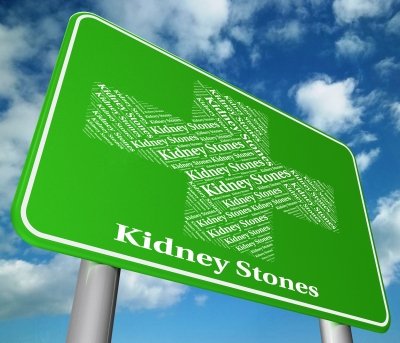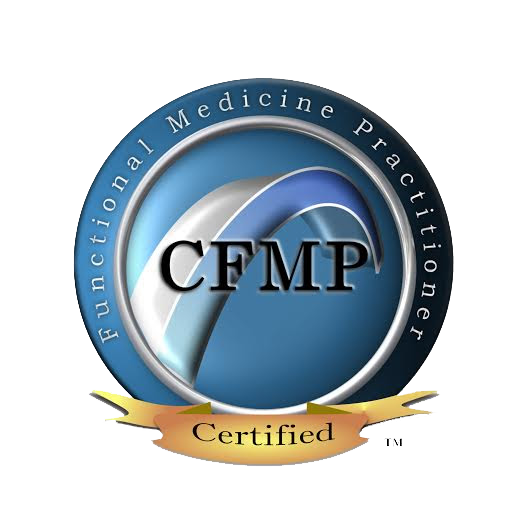
A patient-centered functional medicine approach to treat kidney stones identifies and addresses the underlying root causes rather than solely treating the symptoms. Functional medicine practitioners use specialized testing to identify the root causes of kidney stones, and based on the results they create a treatment plan.
This subject is personal to me. I experienced my first kidney stone in my 30’s. While working in my office one day, I began to feel nauseous, and when intense pain followed I headed to the ER. At that time functional medicine was not a thing. I asked for help to prevent future stones and was advised to drink lots of water. Basically their plan for me, if I got another stone, was to come in for surgery. I didn’t like that plan! A lot of time has passed since then (and a lot of stones too!), and I have learned much about preventing these horrible rocks from hell. In this article I will share what I have learned.
The Basics of Kidney Stones
Calcium oxalate stones are the most common type of kidney stones, accounting for about 80% of all cases. Oxalate is a naturally occurring substance found in many foods, including fruits, vegetables, grains and nuts. When there is too much oxalate in the urine, it can combine with calcium to form crystals, which can grow into kidney stones. Over time a stone can become large enough to cause discomfort or pain when it passes through the urinary tract. It can also cause blood to appear in the urine, which can be unsettling! In some cases a stone becomes too large to pass.
The Root Causes of Kidney Stones
As with any health issue, the functional medicine approach to kidney stones is to find and fix the root causes.
Dehydration
Drinking enough water is important for our bodies. When we become dehydrated, our body produces less urine to conserve water. This causes the urine to become more concentrated in minerals like calcium and oxalate, which can lead to the formation of crystals and eventually kidney stones. .
Oxalates
Consuming foods rich in oxalates can lead to calcium oxalate stones. Foods, such as spinach, rhubarb, and chocolate increase the amount of oxalate in the urine and thus increase the risk of crystal formation. Later we will go into this in more detail.
The GUT
The gut can be the cause of calcium oxalate stones in a couple of ways. First, if a person has loose watery stools they will not absorb the water they are drinking. This in turn results in dehydration which is a major cause of stones in the kidney. Diarrhea-like stools are not normal and a sign that the gut is not well. Common causes of loose stools are gut infections, food sensitivities or digestive problems.
There is a lot of research about the link between the microbiome (the bacterial that live in our bodies) and kidney stones. The metabolism of dietary oxalate involves certain gut bacteria, including some that consume oxalates. If the gut microbiome is unhealthy, it could increase the body’s absorption of oxalates, thereby raising the risk of calcium oxalate stone formation. Symptoms of microbiome imbalance include diarrhea, constipation, bloating and excessive gas.
Candida
Candida is a type of yeast that naturally resides in our body, but overgrowth of candida can lead to a range of health issues, including kidney stones. There are two ways we know of that candida overgrowth can lead to kidney stones.
Candida uses sugar as its primary energy source, and when it does it forms oxalate as a waste product. Oxalates produced by candida, as with all other oxalates, pass through the kidneys, which can lead to the development of stones.
An excess of candida in our intestinal tract can also cause higher than normal absorption of oxalates from food. This is because candida makes a special enzyme that can break down oxalate from food so our body can absorb more of it, potentially contributing to high levels of oxalate leading to kidney stones.
Calcium
Since calcium and oxalate combine to form kidney stones, you might think you’d want less calcium in your diet. However, not getting enough calcium can increase the risk of kidney stones.
The trick is getting the calcium and oxalates together in the right place. When both calcium and oxalate are present in the intestinal tract simultaneously, calcium binds with oxalate, preventing its absorption into the body and then ending up in the kidneys. By binding with oxalate in our intestines before the oxalate can get to the kidneys, calcium reduces the amount of oxalate that can form kidney stones.
It’s important to note that taking too much calcium can also increase the risk of kidney stones. This why testing is so important, which I will address later in this article.
Citrate
Not having enough citrate in the urine can increase the risk of developing kidney stones. Citrate can be found in many fruits and vegetables and special supplements. Citrate can prevent kidney stone formation by binding with calcium in the urine and inhibiting crystal growth.
When there is not enough citrate in the urine, or when the urine is too acidic, it can cause calcium and other minerals to combine and form crystals. Without enough citrate to inhibit the growth of these crystals, they can eventually form kidney stones.
Vitamin B6
Research has demonstrated that vitamin B6 is effective in preventing the development of calcium oxalate stones. Vitamin B6 helps to break down an amino acid called homocysteine. Elevated homocysteine leads to more oxalate production, which can lead to the formation of kidney stones.
You should only take vitamin B6 supplements under the guidance of a healthcare professional. High doses of the vitamin can cause side effects.
Magnesium
Similar to calcium, magnesium can bind with oxalate in the digestive tract, preventing its absorption into the bloodstream. Low levels of magnesium in the body can lead to an increased risk of developing calcium oxalate stones. Therefore, it is important to maintain adequate magnesium levels. Testing is very helpful in determining if there is a need for more magnesium.
Rare Causes
Certain medical conditions, such as hyperparathyroidism, renal tubular acidosis, structural abnormalities in the urinary tract, such as an obstruction or a narrowing of the ureters, can increase the risk of crystal formation.
Drugs
Here are the most common drugs that can contribute to kidney stones:
- Calcium-based antacids: These drugs, which are often used to treat heartburn and acid reflux, can increase the amount of calcium in the urine, which can lead to the formation of calcium-based kidney stones.
- Diuretics: Diuretics are medications that increase urine production and can cause dehydration, which can contribute to the formation of kidney stones.
- Topiramate: Topiramate is a medication used to treat seizures and migraines, but it can also increase the risk of kidney stones by making the urine more acidic.
- Protease inhibitors: Protease inhibitors are medications used to treat HIV, but they can also increase the risk of kidney stones by causing crystals to form in the urine.
- Triamterene: Triamterene is a medication used to treat high blood pressure, but it can increase the risk of kidney stones by causing the formation of crystals in the urine.
The Functional Medicine Approach to Kidney Stones
The first step in helping a patient from a functional medicine approach is to identify what root causes are present. This starts with a detailed history.
Detailed History
The history is critical because often it identifies root causes right away. Things like finding out how much water a person is drinking or how many oxalate-rich foods are in a patient’s diet can be a huge piece of the puzzle.
Specialized testing
Without the advanced testing of today I couldn’t help most of my patients with functional medicine. It’s truly amazing what we can discover today with testing. The tests we often use with a patient who has a history of kidney stones are:
- Advanced stool analysis
- Blood metals
- Organic Acids
- Specific blood tests
Treatment
In functional medicine treatment is unique to each patient. It’s based on what problems the testing and history identify. Treatment is straight forward, logical and specific.
For example if a patient tests positive for a candida overgrowth, the treatment will address this overgrowth. We first identify the root cause and then we aim to fix it.
Some practical tips for preventing kidney stones
Water
Water is very important in preventing kidney stones. More specifically, water passing through the kidneys is important. If the fluid in the kidneys is not diluted enough, the formation of kidney stones is more likely.
How much water is enough to prevent kidney stones? Enough to pee at least once an hour. A general rule is one quart per 50 lbs of body weight. This amount is going to change day to day depending on your activity. For example, on the days I’m in the office I need to drink around 3 to 4 quarts of water to pee once a hour.
On the days I workout at the gym, I have to add another 80 ounces to that. I sweat so much that the 80 ounces is needed to get my system sufficiently hydrated so my body can start to eliminate water again. So if you are not needing to pee at least once an hour you need to increase your water consumption!
Oxalates
You need to know what foods are high in oxalates. If you eat a lot of oxalates every day its just a matter of time until a kidney stone will interrupt your wonderful life. There are several good references out there This one, this one and this one are references I use. There are differences between the lists. Don’t sweat the small stuff. The goal here is to limit or eliminate the foods that are the highest in oxalates.
If oxalate consumption is too high it’s almost a guarantee that kidney stones are coming regardless of how much water a person is drinking.
Calcium + Oxalate = Happiness
This strategy is very important to understand and use! If calcium and oxalate are in the gut at the same time, they bind together and are not absorbed into the bloodstream. This can be accomplished by including a food that is high in calcium or carefully using a supplement like calcium citrate with the meal. I use this strategy when I am going to eat a meal that has oxalates.
This connection was discovered in Great Britain. They discovered that people who drank tea (high in oxalate) with milk or cream were much less likely to develop stones compared to people who drank their tea black.
The amount of calcium needed to bind oxalates from a high oxalate meal can vary, however a general recommendation is to consume at least 200-300 milligrams of calcium with each high oxalate meal..
It’s important to note that while consuming calcium with a meal can help reduce oxalate absorption, consuming too much calcium (more than 2500-3000 mg per day) may increase the risk of kidney stones. Therefore, it’s best to aim for a balanced intake of calcium.
The functional medicine approach to kidney stones is the best!
I could have saved my self a ton of pain and money if functional medicine had existed when I came to the painful discovery that I had a kidney stone problem! Fixing the root causes of kidney stones is a lot less painful then passing them! If you need help with your kidney stone problem I would love to help!
Image courtesy of Stuart Miles at FreeDigitalPhotos.net




